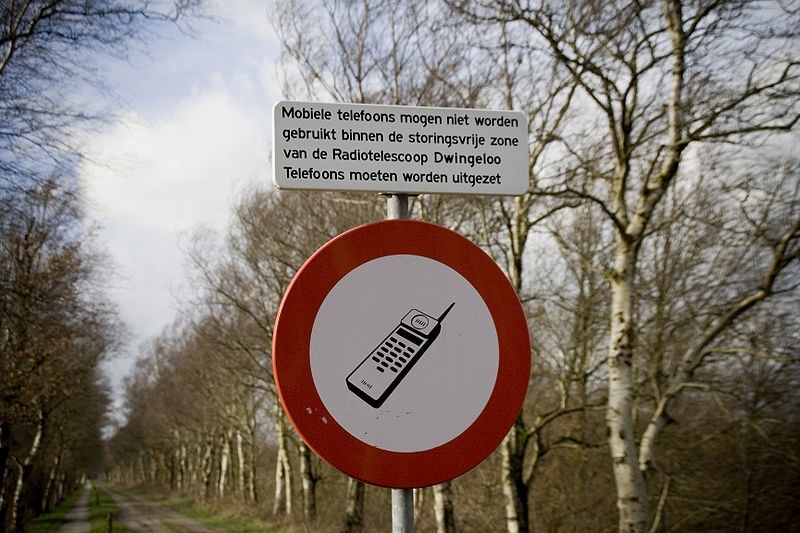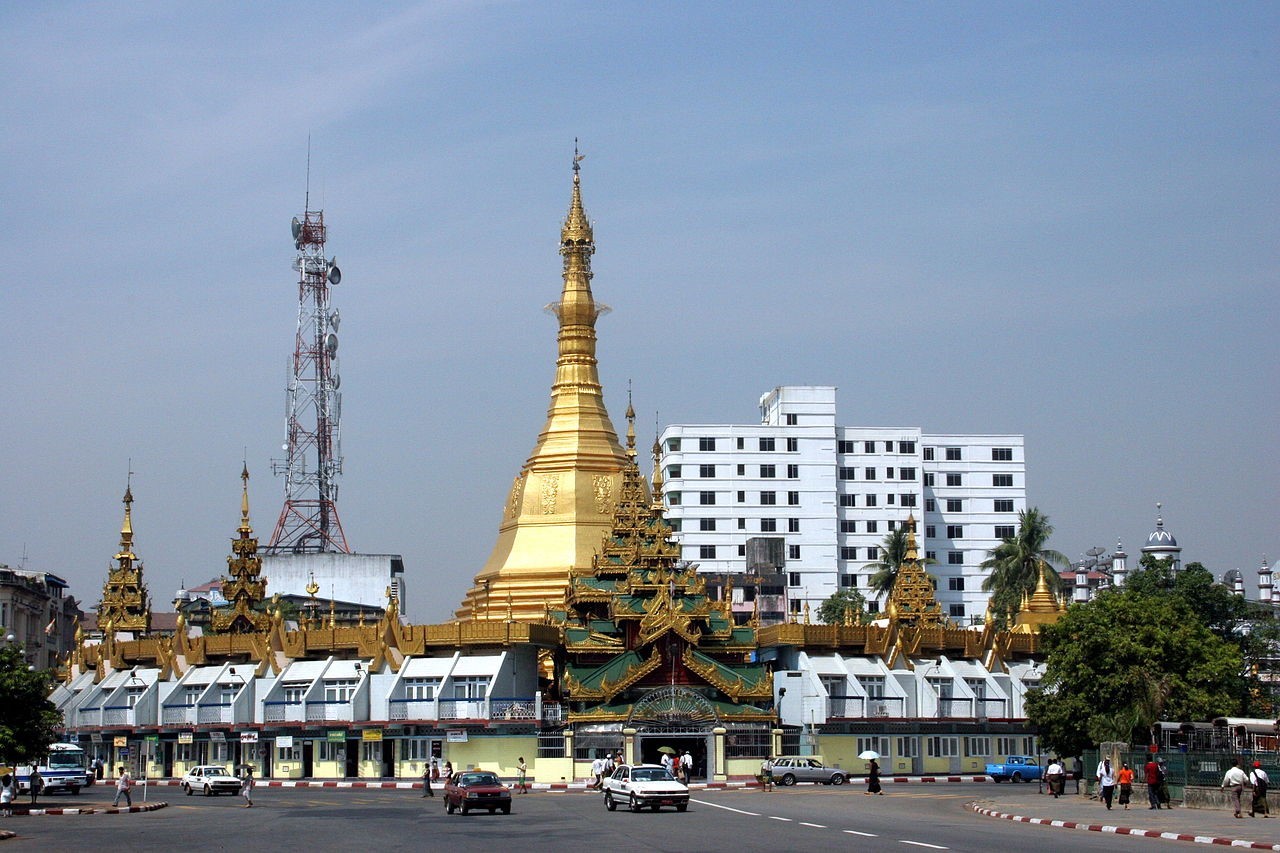Mobile communications and the Internet in different countries of the world

The UN includes 193 states - and there is mobile communication in all of them, including North Korea . In 148 countries, the 4G standard is supported by more than 1,000 telecom operators. With such a variety of offers it is not surprising that in different countries the conditions for subscribers are very different. In this post we have collected information about the unusual (from the point of view of the inhabitants of Russia) conditions for connecting mobile communication / Internet in different parts of the world.
If the lower stage of the pyramid of progress is located somewhere in Ethiopia, which provides mobile Internet speeds up to megabits per second for $ 150 ( up to 30 GB over 3G ), then Megafon managed to overcome the threshold of 1 Gbit / s. At the St. Petersburg International Economic Forum, the operator demonstrated a peak data download speed of 1.24 Gbit / s. However, even this speed is not the limit. In 5G networks, the maximum data transfer rate is set at 20 Gbps.
Moreover, worldwide conditions for subscribers are getting better. Such a state far from the Western world, like Myanmar, for a long time could not provide its residents with an affordable way to access the Internet. In 2010, only 0.2% of the population had access to it, and the SIM card could be purchased for a space card for $ 250 by local standards. In 2016, already 32% of residents began to use the mobile Internet, and the cost of SIM-cards dropped to two dollars. Such results were achieved due to healthy competition - instead of testing one state telecom operator, conditions were created in the country for the arrival of commercial telecommunications companies from other countries. The struggle for the "empty" market has led to lower prices for mobile communications and the Internet.
')
Yet "better" does not always mean "the same for all." Even in the European Union, where mobile roaming is canceled between member countries from June 15, 2017, there are still some nuances that are not always obvious to residents of other countries.
Europe

(c) Vodafone Group
A wide choice of operators, tariff plans and not always obvious services in many countries of the world leads to misunderstanding and unnecessary expenses. In the European Union, local operators are trying to attract "long-term" customers by providing profitable contract tariffs for a period of 12 to 24 (or more) months. In return, the user receives many bonuses: a free phone with a pre-set tariff, discounts on voice communication and mobile Internet, a free router and a number of services. Contract tariffs (postpaid) have a minimum subscriber cost, unlike their counterparts on prepayment. However, only a local resident can participate in a pleasant action, and not a tourist who has run from the street.
This is not always and not everywhere. But, for example, in the Czech Republic and Germany to conclude a contract with a telecom operator, one cannot do without an account at a local bank (monthly subscription fee is charged monthly). 90% of residents use the contract system, and travelers are better off choosing “prepaid” SIM cards, replenishing the balance with payment cards.
Individual operators strive to completely bind customers to themselves. In the UK, early termination of a contract with an operator will result in a fine in the amount of the unpaid balance. According to standard practice, the former subscriber is obliged to pay the operator the full cost of services for the entire duration of the contract.
In Norway, the UK and the Baltic States, a SIM card for contractual (postpaid tariffs) is purchased using a passport. In other countries (for example, in Germany) a passport is not required for the purchase of a prepaid card. Depending on the chosen operator, you can activate the card: through the website, through a call to the operator or by dialing a combination of numbers from the instructions on the phone. To activate via the Internet on the operator's website, you need to register the code indicated on the box with the SIM card, as well as enter your personal data: first name, last name (as in the passport), date of birth, index and address of your location.
If in Greece to activate the tariff it is enough to insert a SIM-card and call a special number, then in Norway you will have to go to the operator’s office. In the UK, SIM cards outside the stores are registered only on the operator’s website. Knowledge of English will help you in this country. But the official sites of many operators in Austria, Germany (and several other countries) are not translated into English. We'll have to use Google Translate.
Difficulties may also arise in choosing relatively cheap virtual operators using not their own networks, but the infrastructure of "parent" companies. According to GSMA Intelligence , more than 600 virtual operators are working in Europe, and there are no clear leaders among them. To understand such a variety of services without a long and careful study of all tariff plans is difficult. You will not receive a SIM card from a virtual operator as fast as in the case of a regular, but at a more favorable rate. Most often, virtual operators do not have an extensive network of offices (or no offices at all), so they cannot just come and conclude a contract. But you can arrange everything on the site (if you know the language, because not all sites of virtual operators outside of western countries are translated into English) and receive a SIM-card by mail or courier. Due to rental savings and minimal maintenance costs of data network equipment, virtual operators can often offer lower rates.
In the area of particular risk

Next to the Dwingeloo Observatory, cellular communication is prohibited so as not to interfere with the operation of the interferometer.
In Turkey, local SIM cards are used only in devices officially registered in the country by the IMEI number . If you insert a local SIM card into an unregistered phone, then in a week to a month both the card and the phone may be blocked. In the future, other SIM-cards in Turkey will not work in this phone. Registration is a paid service for which a passport is required.
In Japan, the GSM mobile communications standard was not supported for a long time. Now all Japanese subscribers are connected to 3G or LTE networks, and 2G is not used. Until recently, phones were sold here that initially support only a particular operator. Want to switch to another - change the phone itself. It was impossible to insert your SIM card into Japanese phones (now, fortunately, there were also “normal” phones). The tubes with the “wired” number had to be rented, but this service was not cheap. The connection itself is also expensive, even by European standards. Throw on the phone a hundred or two yen will not work - the money is withdrawn once a month on account of subscription fees.
Even in Japan, you can buy a Data Only SIM card with a travel rate that allows you to use only the Internet, without a mobile connection. There is another useful service - renting a SIM-card , which you can insert into your Russian phone, but in this case the device must support 3G and 4G communication. It has become easier for tourists to use the mobile Internet, although the usual connection is still expensive .
The lack of a 2G connection affects the operation of dual-use phones: usually in DualSIM mode, only one card works on 3G / 4G networks at the same time, and the second on 2G. This means that the second SIM card in dual-card phones in Japan will not work at all.
Asia

(c) Yozzo
In Israel, to conclude a long-term contract with an operator, you need an account at a local bank, but even a passport is not required to purchase a prepaid card. This state is sometimes called the “Middle Eastern country of start-ups” - there are so many high-tech companies there. In the world ranking of the index of development of information and communication technologies, Israel is 10 points higher than Russia . The development of mobile communication and fixed access to the network led to a paradoxical result - the cost of mobile communication and the Internet became one of the lowest among developed countries, and the total profit of the main operators decreased by 76.6% compared with 2014. That, in turn, led to a reverse increase in tariffs to compensate for losses.
It is hard to believe, but in some countries (let's call China right away) a zero balance is the “death” of a SIM card: incoming calls and SMS are disabled. It’s inconvenient to count how much money a SIM card should actually eat. The services we are used to in the Russian basic packages of services suddenly turn out to be paid: paid incoming calls, sometimes paid incoming SMS, high prices for services in case of exceeding the contract limits.
By the way, the acquisition of a full tariff plan does not always lead to the desired result. In India and some other countries of Southeast Asia, outside of large cities with communication is generally difficult. Cellular coverage in India still does not cover the entire country.
USA

(c) androidauthority.com . 4G LTE coverage in the US
The main "problem" of mobile communications in the States is the high cost. Taxes that you must pay are not always immediately indicated on the websites of operators. Get ready for the fact that when you buy a SIM-card, you will additionally have to pay tax. In the US, they often charge for the activation of a SIM card, and additionally charge a tax of a specific state.
LTE in America is more expensive than in Russia, and the tariffs of the main operators (AT & T, Sprint, T-Mobile, Verizon) are higher than those of small companies and virtual operators. Verizon, the largest US mobile operator, offers 1 GB of mobile Internet for $ 30. In the pros, you can record a high coverage density of communication networks - 98% of the US population are in the LTE coverage area.
Results
Even the neighboring countries are not like each other. In one region, a local SIM card will help you, and in another - it will be a waste of money. And somewhere in general will turn into a source of endless problems.
Russia ranks second in the LTE-Internet cost rating , second only to Iran. It turns out that the mobile Internet in Russia is cheaper than in 48 countries with the largest GDP. In the United States, Britain, Japan, Switzerland, Canada, the cost of the Internet is 5-9 times higher than in Russia.
In any case, always carefully study the conditions of mobile communication in the country where you plan to spend a vacation, and even more so to live longer than three weeks. Recall that Yota helps to stay in touch with full cost control when roaming: http://www.yota.ru/voice/#/roaming
Source: https://habr.com/ru/post/316578/
All Articles